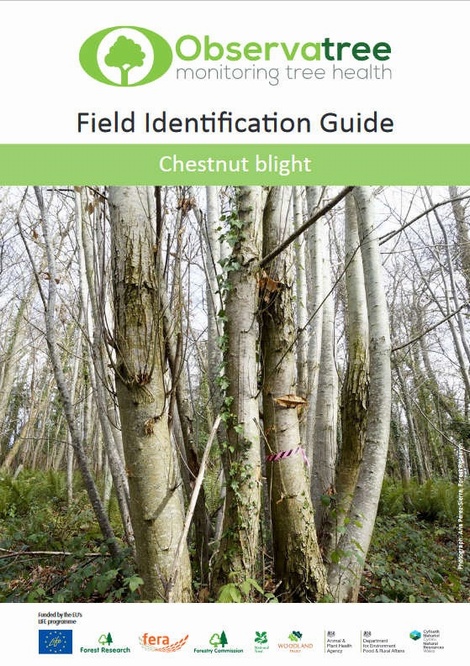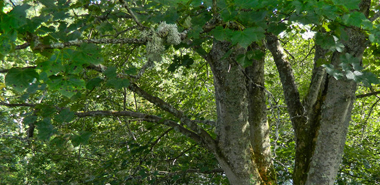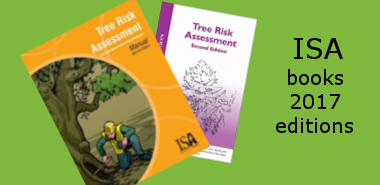| Ringbound | |
| 40 Pages | |
| Photographs |
Chestnut blight
£7.00Chestnut blight is a serious disease of chestnut trees caused by the fungal pathogen Cryphonectria parasitica. This disease infects healthy trees via bark cracks or wounds in woody tissue, such as those made from grafting, coppicing, or the activity of squirrels and some insects such as the oriental chestnut gall wasp (Dryocosmus kuriphilus) and wood borers. Once an infection has entered a susceptible host, it can spread so rapidly that stems or branches are soon girdled, and cankers, which form on main stems, can kill the entire above-ground part of a tree within one or two years. However, in some instances the fungus has been observed to be less aggressive and produce subtle symptoms (e.g. lesions that develop slowly and do not necessarily result in the death of tissues above them). C. parasitica causes significant disease and mortality in chestnut orchards, plantations and woodlands throughout many regions of Europe.
Publisher: - Forest Research - more
Year: - 2017
Authors: - Dr Suzanne Sancisi-Frey, Forest Research











